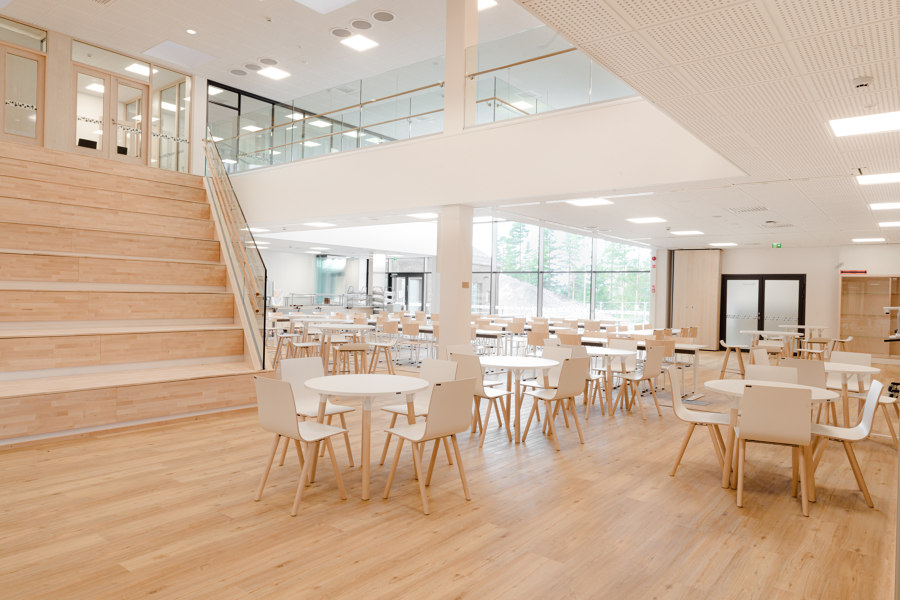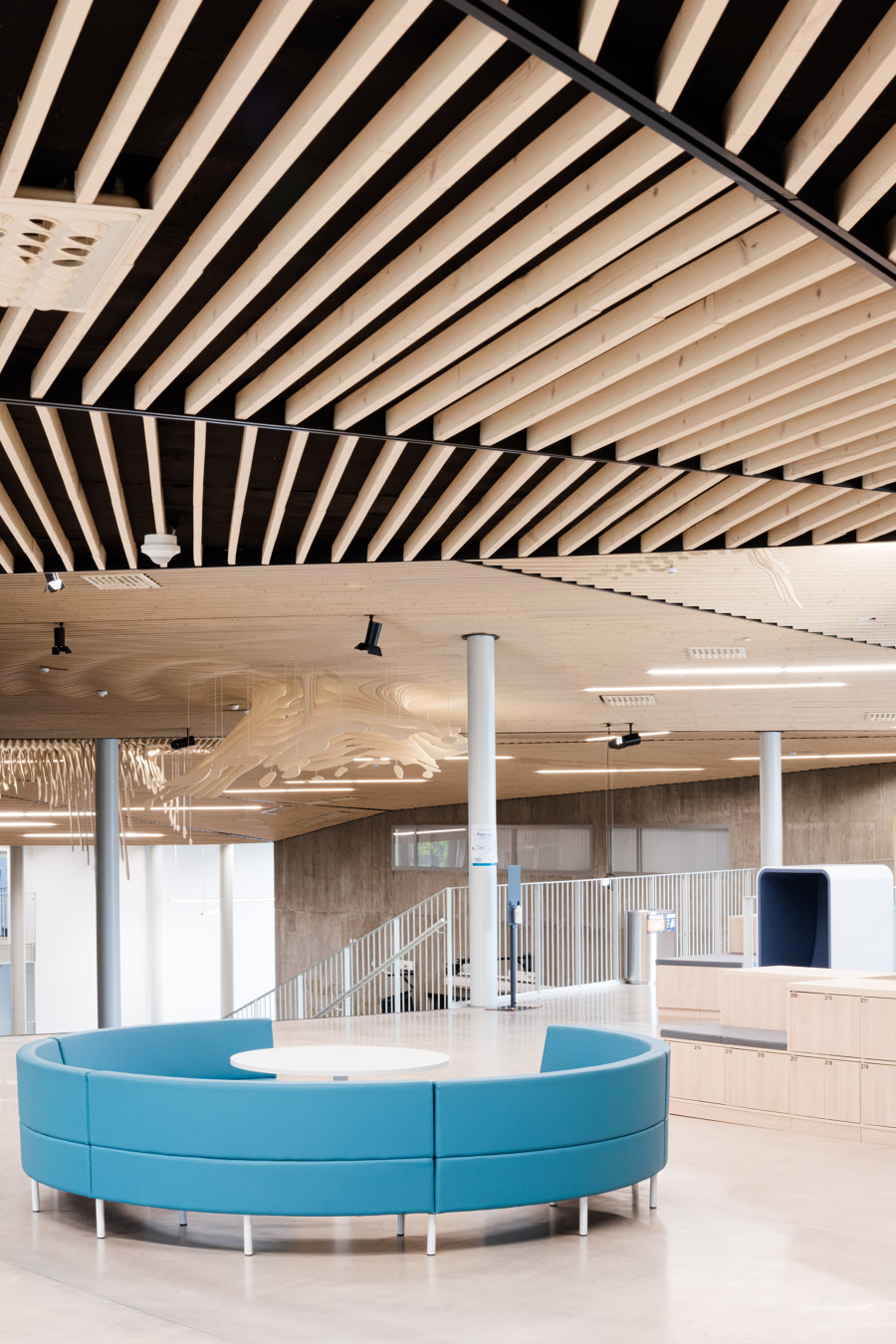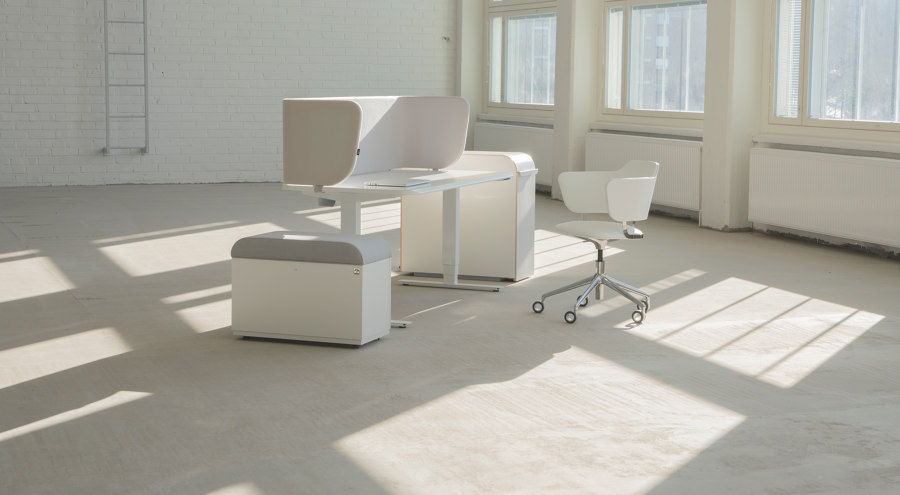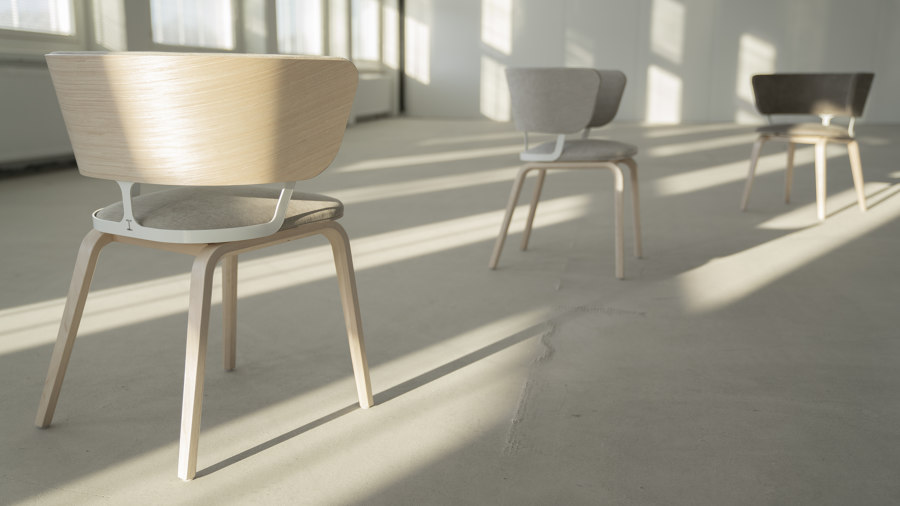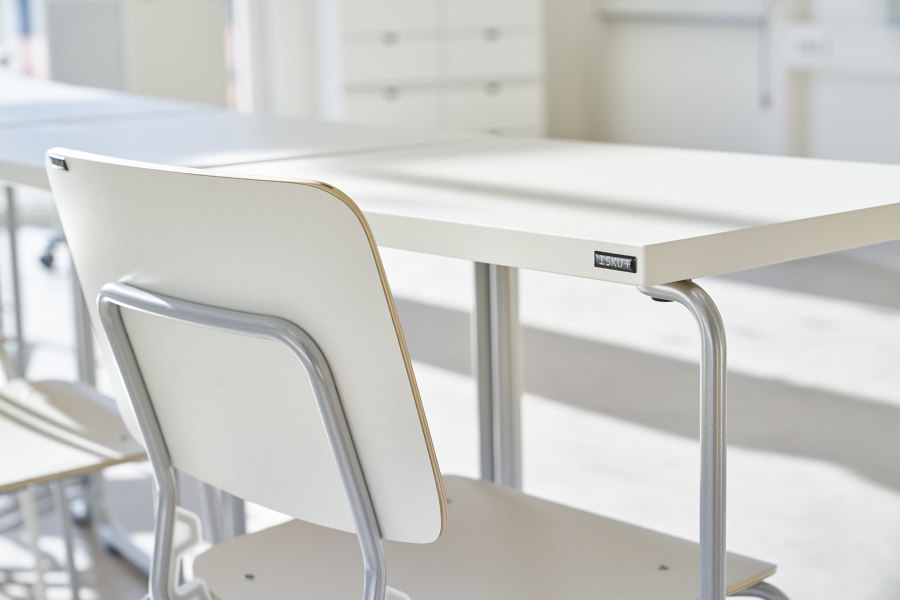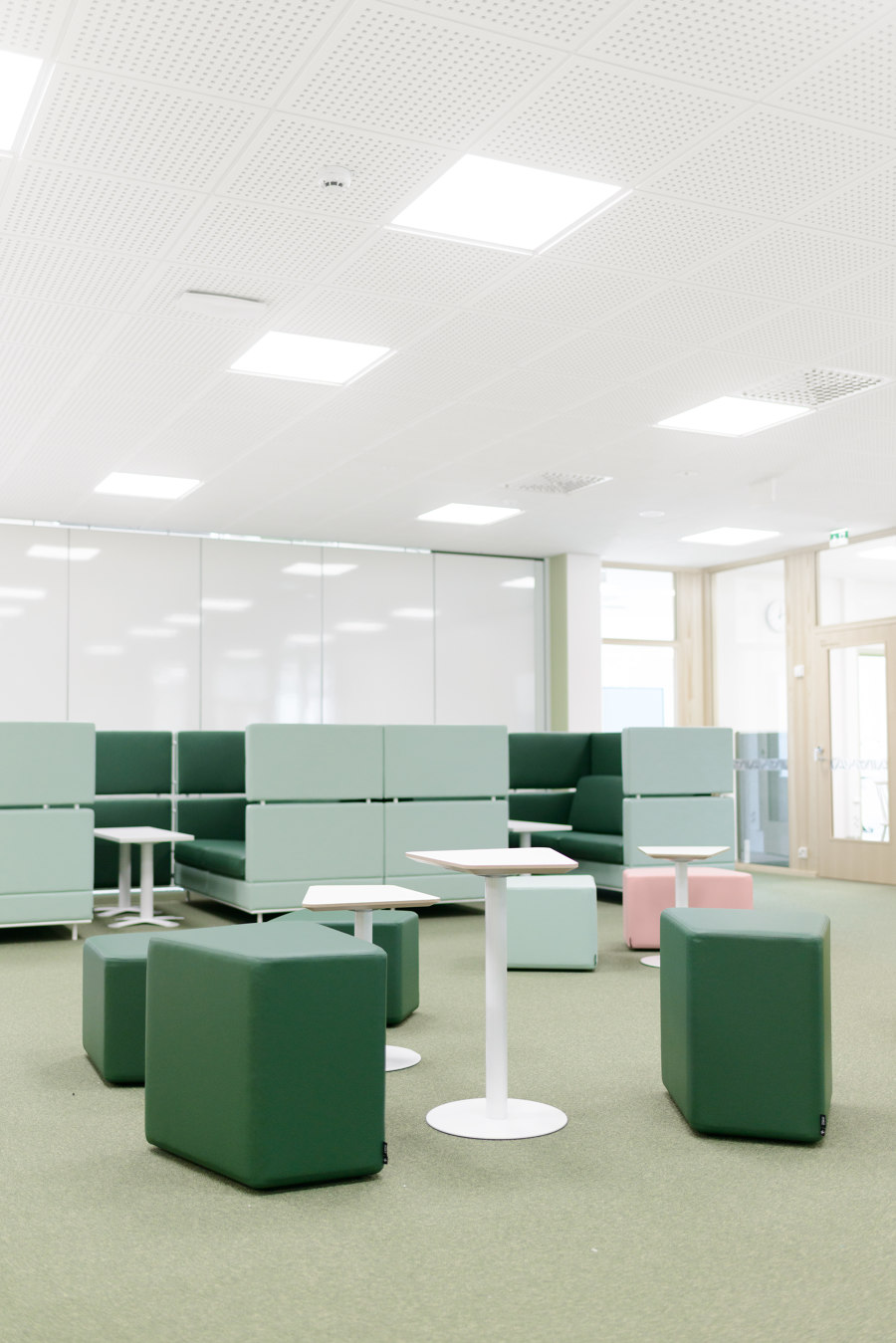So superficial: ISKU’s antimicrobial solutions
Historia de la marca de Emma Moore
Lahti, Finlandia
22.04.21
Know what ‘active hygiene’ is? We didn’t until 90-year-old Finnish furniture company ISKU invited us to find out…
ISKU+ furniture incorporates antimicrobial technology in its surfaces. Disabling a wide variety of viruses, bacteria, mould, fungi, algae, and yeast, it is helping make sick days a thing of the past
Active hygiene is the latest tool to be added to the kit of the wellness-led interior architect. It joins lighting, air and sound quality control, the use of clean materials, a calming colour palette and biophilic design as considerations when integrating health-promoting functionality into a building. Its potential, in the form of antimicrobial technologies embedded in interior surfaces, has become the focus of 90-year-old Finnish furniture company ISKU, which has formed an alliance with other Finnish companies in the design and architecture sector, to promote their microbe minimising strategy for cleaning up our enclosed environments. The HygAlliance’s ambition is to bring Finnish antimicrobial solutions to interiors globally.
Antimicrobial functionality is something ISKU has in fact incorporated into furniture since 2015, back when one of the biggest health threats was antibiotic resistance, and the major challenge to productivity was sick leave brought on by a common cold or flu. It was introduced to a limited portfolio of products that were installed in a number of Finnish medical institutions over the past six years. Now the antimicrobial system ISKU+ is being introduced as an optional feature applicable to ISKU’s entire range of furniture.
All ISKU standard products are available as antimicrobial. In shared spaces, the key benefits of ISKU+ solutions can be seen in increased safety and well-being of all users
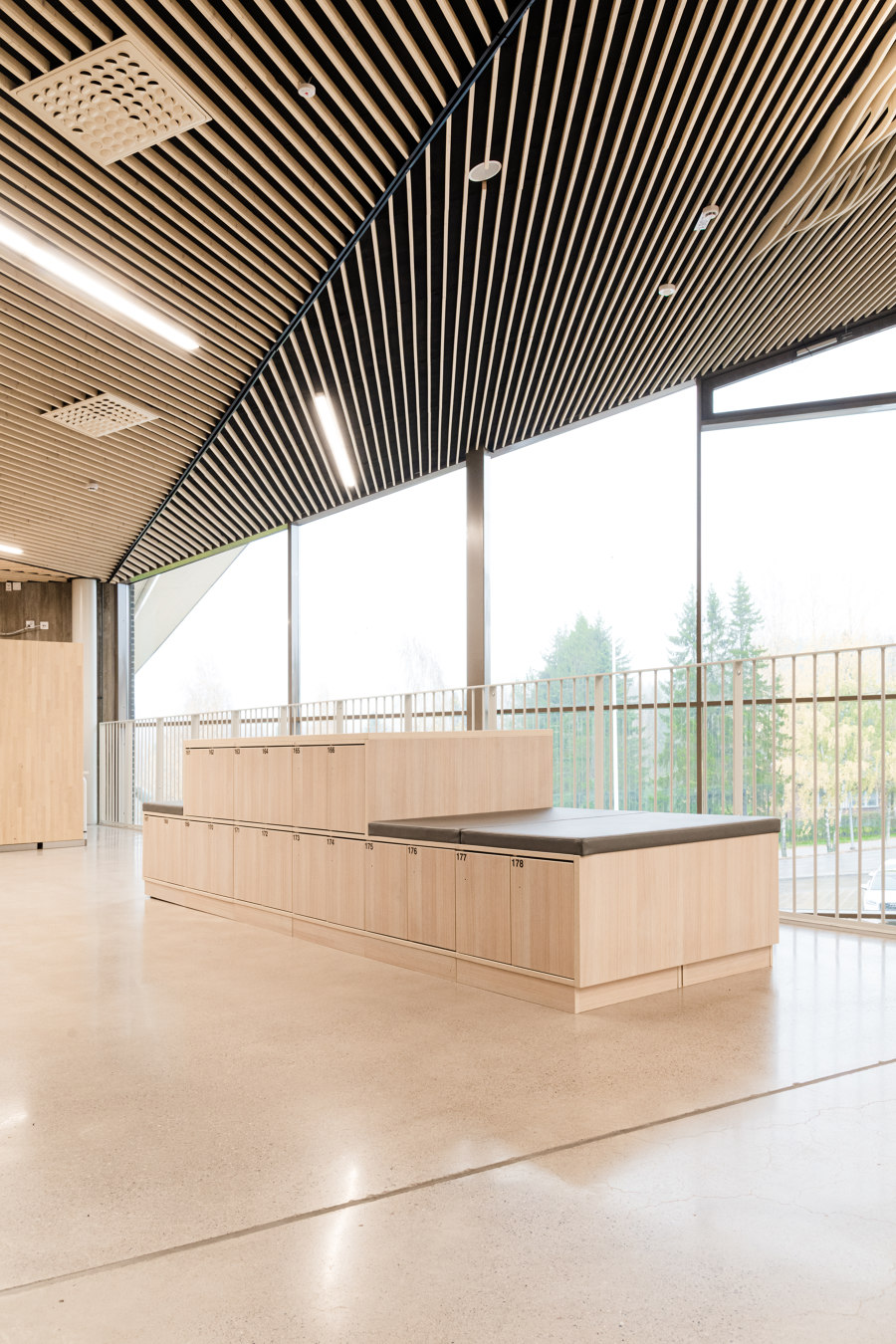
All ISKU standard products are available as antimicrobial. In shared spaces, the key benefits of ISKU+ solutions can be seen in increased safety and well-being of all users
×The company’s initial forays involved the integration of antimicrobial copper and copper alloys such as brass into its designs. It subsequently invested in research into silver-ion based technologies that can be incorporated invisibly and indelibly into materials such as laminate, plastic, powder coating and varnish. ‘So a chair with a wood seat and back, metal frame and plastic armrests can be manufactured with completely antimicrobial surfaces,’ says Vikström. ‘And laminate tops, edge bands and table frames can be antimicrobial. It is very adaptable technology as it mixes with various materials.’
Historically, ISKU has supplied high-quality functional furniture, styled in the language of modern Scandinavian design, to hospitals and clinics, schools, airports and offices across Finland and beyond. Its work with medical institutions prompted the initial interest in hygiene design and in 2015, ISKU+ began as an exploration into using antimicrobial contact surfaces to reduce infections and antibiotic-resistant bacteria strains in hospital environments. ‘The antimicrobial concept is a game-changer as it affects wellbeing via infections, not just aesthetics, comfort or ergonomics,’ says Joonas Vikström, who manages the ISKU+ concept.
MyFlow is the newest product family from ISKU+. It is designed to work flexibly in multi-functional spaces, while antimicrobial surfaces resist the spread of disease
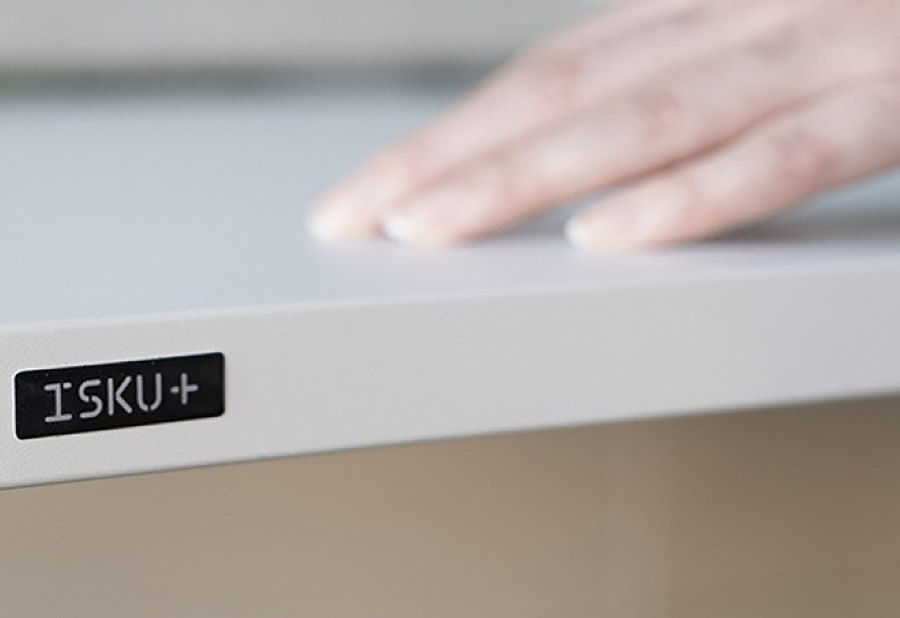
MyFlow is the newest product family from ISKU+. It is designed to work flexibly in multi-functional spaces, while antimicrobial surfaces resist the spread of disease
×ISKU works with an evidence-based and research-first mindset. It has taken part in ‘living lab’ case studies made in cooperation with Metropolia University of Applied Sciences. One classroom of a primary school in Taatila, Finland, was fitted out with antimicrobial furnishings from the HygAlliance and was pitted against another classroom furnished with non-antimicrobial counterparts. The study confirmed a substantial reduction in the presence of microbes in the first classroom and 52% less absenteeism.
Led by in-house development manager and doctor of chemistry, Kari Soljamo, ISKU’s research has proven that its silver-ion technology disables certain viruses, a broad spectrum of bacteria (including antibiotic-resistant strains), mould, fungi, algae, and yeast. It reduces their presence by up to 99.99 per cent by causing damage to DNA and preventing them from multiplying. The antimicrobial technology is also proven to be a permanent feature that continually inhibits the growth of microbes throughout the life of the furniture.
ISKU+ installed in Taatila School (top), Kuuhankavesi School (middle), both in Finland, and in the paediatric department of Acibadem Maslak Hospital in Istanbul. Studies have shown that ISKU+ help cut absenteeism by half in a school setting
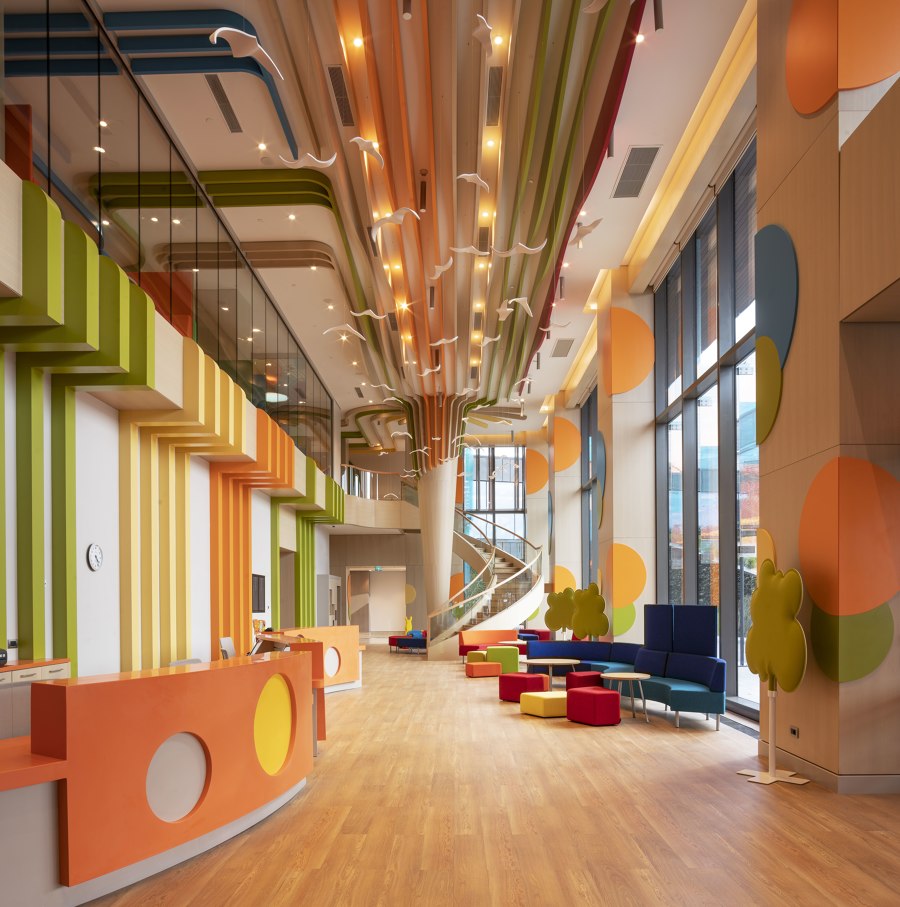
ISKU+ installed in Taatila School (top), Kuuhankavesi School (middle), both in Finland, and in the paediatric department of Acibadem Maslak Hospital in Istanbul. Studies have shown that ISKU+ help cut absenteeism by half in a school setting
×It’s this last piece of data that ISKU hopes will resonate in the minds of those designing new offices, schools and public spaces as we clamber out of the pandemic. While it has not yet been possible logistically to certify effectiveness against SARS-CoV-2, copper is known to disable the virus to a degree and the silver-ion technology has proven effective against other coronaviruses, and the sorts of microbes responsible for most worker absenteeism. Incorporated into interiors, active hygiene significantly amplifies all those other measures of germ-control that we have become oh so familiar with of late.
© Architonic


